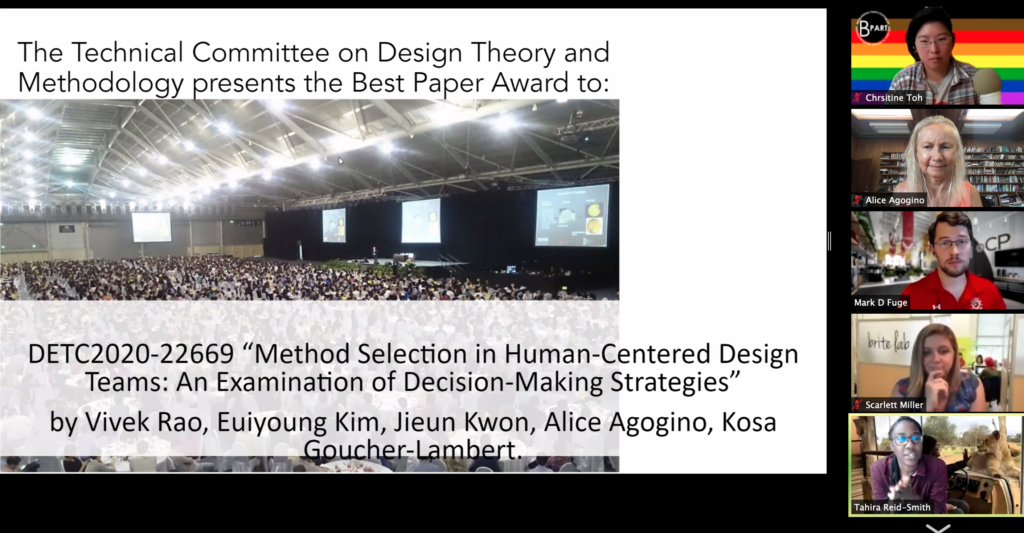UC Berkeley Mechanical Engineering faculty (Alice Agogino and Kosa Goucher-Lambert), PhD graduates (Eui-Young Kim, Vivek Rao) and a visiting student from the University of Minnesota (Jieun Kwon) have been recognized for their research paper on decision making about design methods. They won the 2020 Best Paper Award in the Design Theory and Method division at the ASME International Design Engineering Technical Conference. The paper was selected for the award from among the more than 50 peer-reviewed papers accepted for the conference.
The paper, entitled, ‘Method Selection in Human-Centered Design Teams: An Examination of Decision-Making Strategies’ offers a deeper understanding of designers’ method selection behaviour. The findings have implications for the effective management of design teams, the development of automated design support tools to aid design teams, and the curation of design method repositories such as, theDesign Exchange.
More information
- Update: Recent Publication in the ASME Journal of Mechanical Design. Complementary PDF available for a few weeks here.
- Conference Paper: Method Selection in Human-Centered Design Teams: An Examination of Decision-Making Strategies.
- Abstract: Designers’ choices of methods are well known to shape project outcomes. However, questions remain about why design teams select particular methods, and how teams’ decision-making strategies are influenced by project- and process-based factors. In this work, we analyze novice design teams’ decision-making strategies underlying 297 selections of human-centered design methods over the course of three semester-long project-based engineering design courses. We propose a framework grounded in 100+ factors sourced from new product development literature that classifies design teams’ method selection strategy as either agent-, outcome-, or process-driven, with eight further subclassifications. Coding method selections with this framework, we uncover three insights about design team method selection. First, we identify fewer outcomes-based selection strategies across all phases and innovation types. Second, we observe a shift in decision-making strategy from user-focused outcomes in earlier phases to product-based outcomes in later phases. Third, we observe that decision-making strategy produces a greater heterogeneity of method selections as compared to the class average as a whole, or project type alone. These findings provide a deeper understanding of designers’ method selection behavior, and have implications for effective management of design teams, development of automated design support tools to aid design teams, and curation of design method repositories, e.g., TheDesignExchange.

